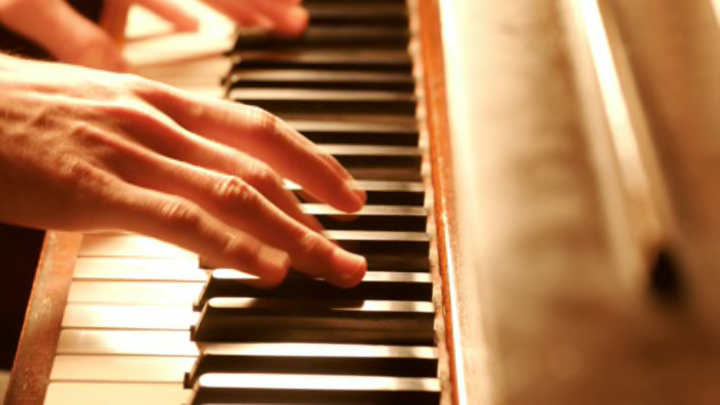Some people are born with an innate ear for music. But only about one in every 10,000 people has absolute pitch—the ability to identify a musical note just by hearing it, with no reference note—and the trait may have genetic underpinnings. Typically, those with absolute pitch, often called perfect pitch, start their musical training young, before the age of 7. However, a small study by a group of University of Chicago psychologists suggests perfect pitch can be taught to adults, to some extent.
The study, published in the journal Cognition, finds that a person’s working memory capacity influences whether they’re able to learn perfect pitch in adulthood. Working memory is the ability to hold information in your mind (like doing arithmetic in your head).
In the first test, 17 college students went through training to help them identify 180 notes on the piano, with real-time feedback about whether they had identified the note correctly. After training, they showed significant improvement, and more than five months later, the few students the researchers were able to retest retained a significant amount of their ability to identify notes with perfect pitch.
In another test, 30 participants were trained to identify 12 different piano notes with video and audio feedback on their responses. They improved significantly between a pre-test and post-learning assessment. Both groups also took a test to measure their working memory.
The scientists found that better auditory working memory was correlated with a better ability to identify notes. Nonmusical adults who were able to perform well on the pitch tests "likely have extremely high executive functioning in the auditory domain, which allows them to selectively attend to pitch information and hold it in working memory even when presented with several interfering tones," they report. In other words, these subjects were better at holding the sound of the tone in their mind, which made it easier to identify when they heard it again.
It’s unclear whether perfect pitch resulting from training is the same as perfect pitch attained in childhood, and this study is too small to be definitive. Previous research has also suggested that perfect pitch can be learned, including with the help of drugs. But the study does provide further evidence that musical ability doesn’t need to be cemented in childhood piano lessons—especially if you have a good memory.
[h/t: Eurekalert]
